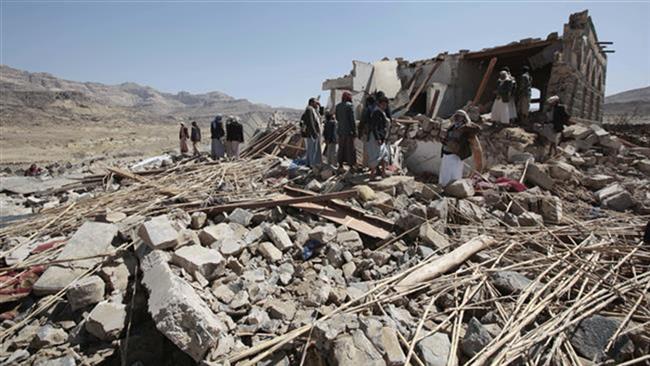
RNA - The heads of three UN agencies, UNICEF, WHO and WFP, have also urged the Saudi-led military coalition on Thursday to lift its blockade of Yemen, warning that "untold thousands" will die if it stays in place, the Middle East Eye reported.
The heads of three UN agencies issued a joint statement, calling on Saudi Arabia to end its protracted blockade of the Yemeni coast, warning that “untold thousands” will die soon if it is not lifted.
UN Secretary General Antonio Guterres wrote to Saudi UN Ambassador Abdallah al-Mouallimi to warn him that the blockade was "already reversing the impact of humanitarian efforts," UN Spokesman Stephane Dujarric said on Thursday.
"The secretary general is very much disappointed we've not seen a lifting of the blockade. The secretary general and his humanitarian team are heartbroken at the scenes we're seeing from Yemen," Dujarric told reporters.
The World Food Program also stressed that Saudi Arabia's continued blockade threatens the lives of millions in Yemen as aid deliveries cannot get to the needy, presstv reported.
Stephen Anderson, the head of the World Food Program, on Monday described as "heartbreaking" the fact that millions in Yemen depend on sustained access to humanitarian assistance.
The United Nations made a plea for the Saudi war machine to remove its blockade, warning that without aid shipments “untold thousands of innocent victims, among them many children, will die” and that its partial lifting was not enough.
Saudi Arabia has been striking Yemen since March 2015 to restore power to fugitive president Mansour Hadi, a close ally of Riyadh. The Saudi-led aggression has so far killed at least 15,000 Yemenis, including hundreds of women and children.
Despite Riyadh's claims that it is bombing the positions of the Ansarullah fighters, Saudi bombers are flattening residential areas and civilian infrastructures.
According to several reports, the Saudi-led air campaign against Yemen has driven the impoverished country towards humanitarian disaster, as Saudi Arabia's deadly campaign prevented the patients from travelling abroad for treatment and blocked the entry of medicine into the war-torn country.
The cholera outbreak in Yemen which began in April, has also claimed over 2,200 lives and has infected over 900,000, as the nation has been suffering from what the World Health Organization (WHO) describes as the “largest epidemic in the world” amid a non-stop bombing campaign led by Saudi Arabia. Also Riyadh's deadly campaign prevented the patients from traveling abroad for treatment and blocked the entry of medicine into the war-torn country.
According to reports, the cholera epidemic in Yemen, which is the subject of a Saudi Arabian war and total embargo, is the largest recorded in modern history.
Meanwhile, the United Nations has described the current level of hunger in Yemen as “unprecedented,” emphasizing that 17 million people are now food insecure in the country.
It added that 6.8 million, meaning almost one in four people, do not have enough food and rely entirely on external assistance.
A recent survey showed that almost one third of families have gaps in their diets, and hardly ever consume foods like pulses, vegetables, fruit, dairy products or meat.
More than 3 million pregnant and nursing women and children under 5 need support to prevent or cure malnutrition.
847/940